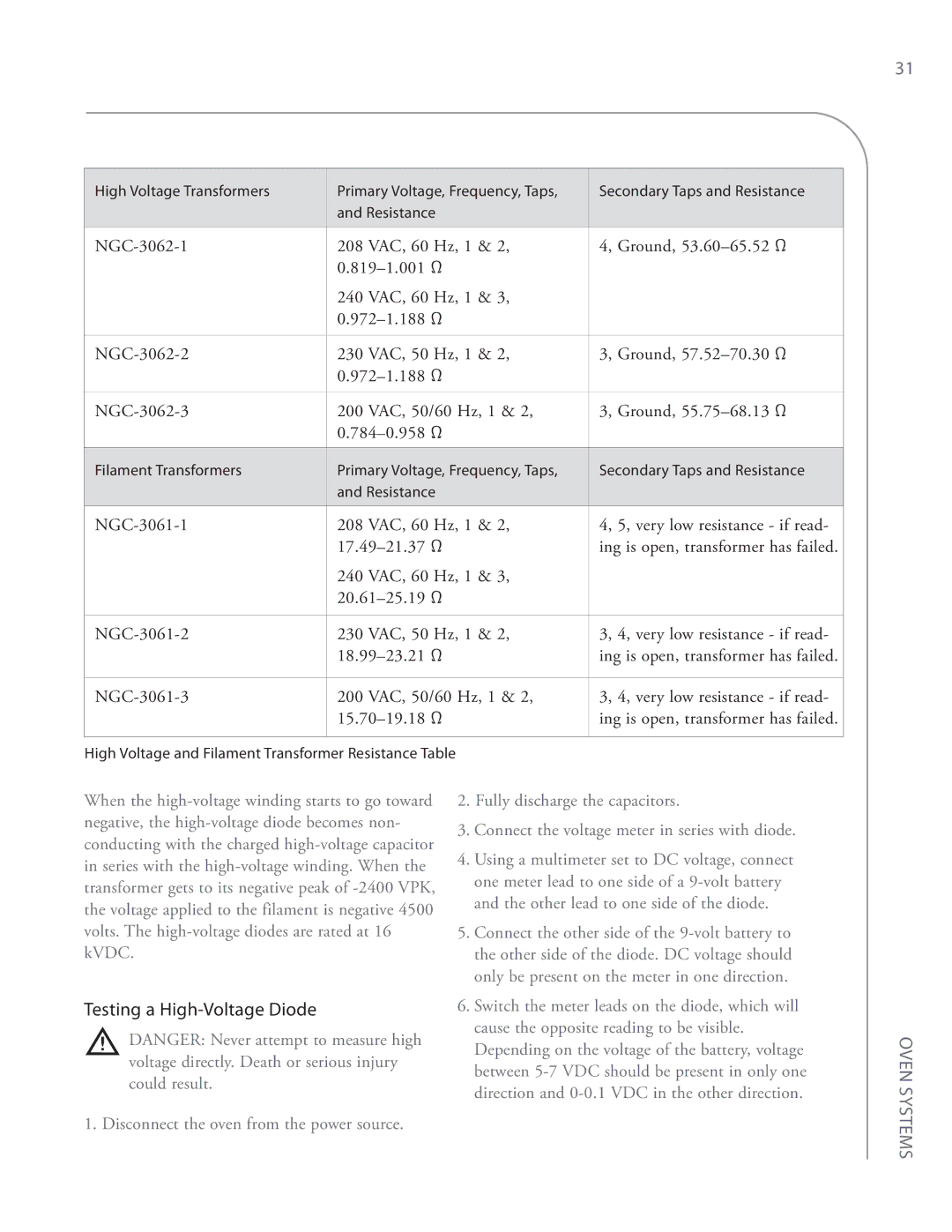
High Voltage Transformers | Primary Voltage, Frequency, Taps, | Secondary Taps and Resistance | |
| and Resistance |
| |
|
|
|
|
208 | VAC, 60 Hz, 1 & 2, | 4, Ground, | |
|
| ||
| 240 | VAC, 60 Hz, 1 & 3, |
|
|
| ||
|
|
|
|
230 | VAC, 50 Hz, 1 & 2, | 3, Ground, | |
|
| ||
|
|
|
|
200 | VAC, 50/60 Hz, 1 & 2, | 3, Ground, | |
|
| ||
Filament Transformers | Primary Voltage, Frequency, Taps, | Secondary Taps and Resistance | |
| and Resistance |
| |
|
|
|
|
208 | VAC, 60 Hz, 1 & 2, | 4, 5, very low resistance - if read- | |
| ing is open, transformer has failed. | ||
| 240 | VAC, 60 Hz, 1 & 3, |
|
|
| ||
|
|
|
|
230 | VAC, 50 Hz, 1 & 2, | 3, 4, very low resistance - if read- | |
| ing is open, transformer has failed. | ||
|
|
|
|
200 | VAC, 50/60 Hz, 1 & 2, | 3, 4, very low resistance - if read- | |
| ing is open, transformer has failed. | ||
|
|
|
|
High Voltage and Filament Transformer Resistance Table
31
When the
Testing a High-Voltage Diode
DANGER: Never attempt to measure high voltage directly. Death or serious injury could result.
1. Disconnect the oven from the power source.
2.Fully discharge the capacitors.
3.Connect the voltage meter in series with diode.
4.Using a multimeter set to DC voltage, connect one meter lead to one side of a
5.Connect the other side of the
6.Switch the meter leads on the diode, which will cause the opposite reading to be visible. Depending on the voltage of the battery, voltage between
OVEN SYSTEMS
